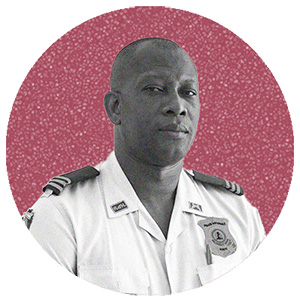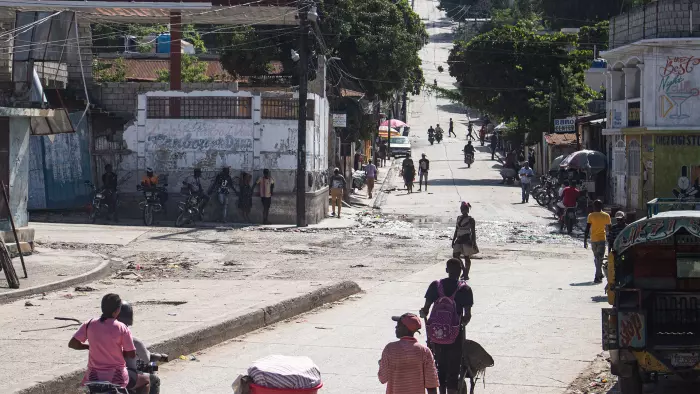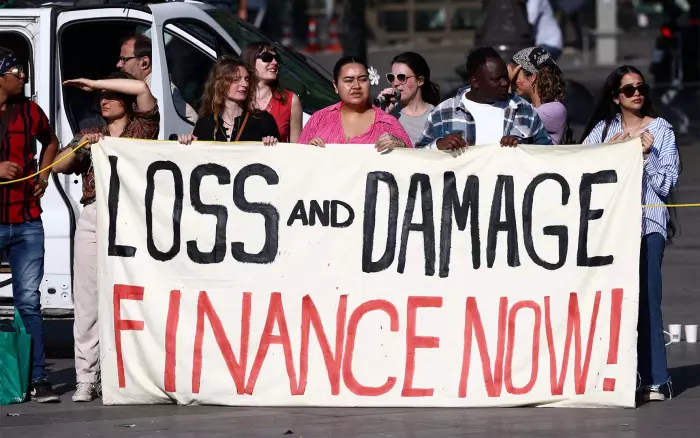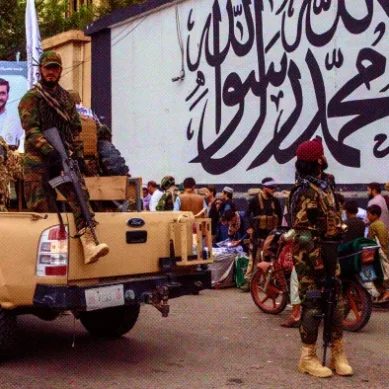
As Kenya and 1 other countries prepare to send police officers to Haiti to restore law and order in the island nation that is controlled by gangs, interviews with various cadres of populace point to remote hope that foreign law and order enforcers may just provide a way out the social and economic imbroglio.
Lionel Lazarre, 42, police officer and coordinator of the National Union of Haitian Police Officers
We need social measures to help people in the neighbourhoods cut ties with the bandits.
We live in a country where the state is almost non-existent regarding insecurity… The Haitian police force is one of the few institutions still standing. But [they] are overwhelmed. No gang has been dismantled. The same gang leaders are still out there terrorising the population. The government and [the leaders of the police] need to provide the resources and means for large-scale interventions, but they don’t.
We hope that the international force will work closely with the police to deliver concrete results. An overall strategy must be established and tactics to attack the gangs must be defined to impose a firepower greater than that of the gangs to quickly dismantle them…
Today, the police have no informers. Due to poverty, many people prefer to collaborate with gangs to gain economic benefits… Sometimes, gang leaders distribute a few bags of stolen rice or money in the neighbourhoods. These people inform them of any police action.
Along with the international force, we need social measures to help people in the neighbourhoods cut ties with the bandits.”
Fabien, 54, (his name was changed for security reasons), judge in Pétion-Ville, Port-au-Prince:
We are at an impasse.
We’re all surrounded by insecurity. No one is spared. As a judge, I often dispense justice to criminals… I have no protection… Many judges have left the country due to threats. These are enormous losses for a sector that suffers from a lack of qualified personnel.
The principled position is to say ‘no’ to any foreign force in Haiti. First, because we are a sovereign country, and second, because historically foreign forces have caused us a lot of harm. But I can tell you that we are at an impasse. The national police force that is supposed to protect us is undermined by corruption, and many police officers are under the influence of gangs or involved in politics. So what do we do?”
Josianne Marthel, 35, store owner:
The government wants to consolidate its power, and an occupying force will help it to do so.
I’m a housewife with a daughter, and an entrepreneur. I have a clothing boutique in Port-au-Prince. Business used to be good, I had three employees and lots of customers. The crisis began in 2020, when kidnapping reached new heights. Since then, people don’t go out anymore. There isn’t really any activity. My store has shrunk considerably. I’ve had to sack all the staff and I’m trying to carry on in the hope that things will improve.
Today, I’m worried about my life, [and] that of my husband and my child. A few months ago, I was attacked by bandits downtown while I went to get supplies. The country offers no future for my child. I am doing everything to make sure that she leaves this place as quickly as possible.
I’m against the international force coming to Haiti… What has the government done to solve the problem? Nothing. The government wants to consolidate its power, and an occupying force will help it do so. And the population will be abused, women will get raped. Frankly, I’m against it. The international community has to give the police the means to do their job. They could provide advisers who could help reform the Haitian police. If that doesn’t work, then we consider a foreign force.”
Joseph Monode, 54, president of the Chamber of Commerce and Industry of Haiti (CCIH):
I believe in our forces more than in any international force.
Haitian businesses are really impacted by the country’s insecurity. Certain sectors almost no longer exist, such as hotels or restaurants in Port-au-Prince… Additionally, it is difficult to travel by road from one department to another because gangs occupy key crossroads, so the problem is reflected even in departments where insecurity is lower. Traders have their goods stolen on the road, leading to heavy losses… We continue to do business because we love what we do and we are tenacious, but the conditions are not good.
We need to think about strengthening our police and our army. Foreign forces have come to Haiti several times in the recent past, but what has been the result? If the energy and money that will go to the international force was invested in our national forces instead, it would strengthen these structures and give jobs to our young people, who today are trying to leave the country by any means possible. What do our national forces need? Training, equipment, ammunition… The means were never given to the police. And frankly, I believe in our forces more than in any international force, because they know our reality better than anyone.”
Anita Saint-Jean, 47, (her name was changed for security reasons), informal bread seller in the capital’s gang-controlled neighbourhood of Canaan:
This situation is unbearable and a solution must be found.
The permanent insecurity there has been in the area for more than a year has put my family in many difficulties. I have three children: a 20-year-old son, a 15-year-old daughter and an 11-year old son. The two eldest can no longer live here because they have received threats. My 20-year-old was threatened several times by gangs because he did not want to join them. As for my daughter, one of the gang members already had eyes on her. And I know they raped a lot of girls in the neighbourhood. So, I arranged for [both of them] to leave the neighbourhood.
Today, they each live at someone else’s place. They cannot even come to see me anymore.
Additionally, due to insecurity, my business is no longer working. The area has no life; it is a desert. Fewer people buy; they have no money because there is no activity; and most bakeries are closed. I have to go far to get supplies, sometimes under bullets. Now, I rely almost totally on my husband, who works as a DJ´s assistant. I’m very worried about my children.
Whether it is an international force or the national police [who can help], I don’t know. I don’t do politics. I just want to say that this situation is unbearable and that a solution must be found.”
Pierre Buteau, 74, president of the Haitian Society of History, Geography, and Geology, and former minister of education:
The arrival of an international force in Haiti would be a waste of time.
I was kidnapped on 23 January 2023. Heavily armed bandits came into my home at 5:45am. I was terrified for my wife, my children, and my grandchildren who were with me. I spent a week and two days in the hands of the kidnappers and was then released for ransom. Fortunately, friends helped us financially and psychologically to get through this bad time.
Today, I fear for my loved ones and myself, but above all I worry about the country. Insecurity has claimed so many victims, especially among the middle and working classes… The situation is so explosive that the country risks breaking into pieces. But I don’t want to leave the country. I am a school and university professor, I am president of the Haitian Society of History, a century-old organisation. I have a history with this country that makes me stay here.
The insecurity that prevails today is only the tip of the iceberg. The crisis is deep: It is an institutional crisis – a crisis of the state. Gangs today are an expression of this collapse. With the fall of [Jean-Claude] Duvalier (Haiti’s former president), we destroyed all our institutions, as if this country never had the instruments to solve its crises and never had political traditions.
Moreover, the international community, controlled by the United States and Western Europe, have assumed the right to direct world affairs and to implement democracy their way in countries like Haiti.
The arrival of an international force in Haiti would be a waste of time. Other countries like Algeria have resolved their insecurity crisis on their own. We can solve the problem ourselves by setting up a global security system and creating a specialised military police with the same discipline that the army had. And at the same time, we look at the basic institutional problem.”
- The New Humanitarian report











